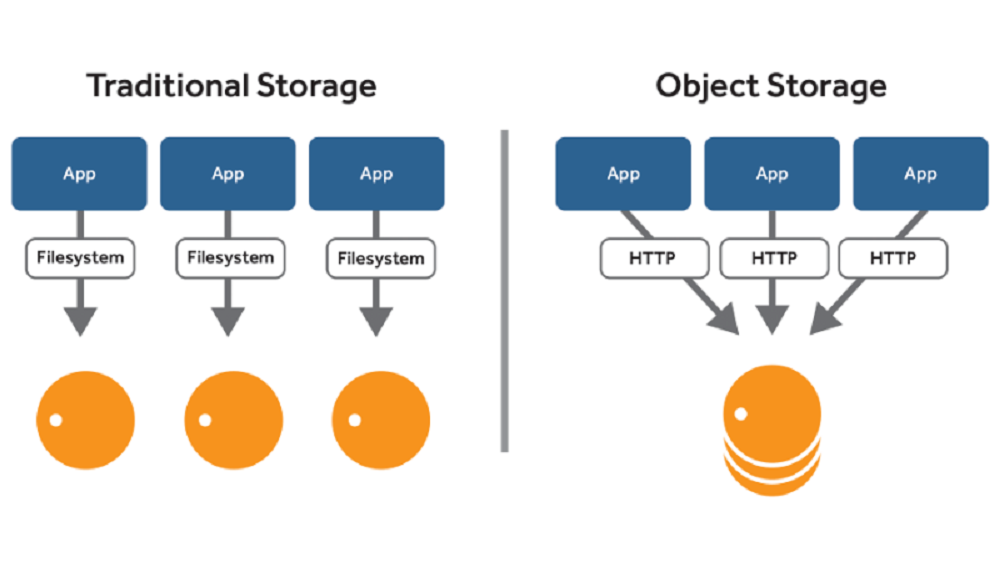The challenges of traditional data storage are all too familiar to many organizations. Teams waste countless hours managing complex directory structures and overloaded servers, while worrying about hardware failures and security threats. This frustration explains why Amazon S3 has become the storage solution of choice for businesses seeking simplicity and reliability.
Unlike conventional file systems with their rigid folder hierarchies, Object storage S3 uses a radically different approach. Each file exists as an independent object with a unique identifier, eliminating the need for complicated directory navigation. When a specific document from three years ago is needed, it can be retrieved directly rather than hunted through layers of folders.

Storing archived data
Financial institutions required to maintain transaction records for seven years or more often discover that on-premise storage costs spiral out of control. One regional bank found itself spending $45,000 monthly just to power and maintain its archive servers. After migrating to S3 Glacier Deep Archive, those costs dropped to under $1,200 per month while actually improving data retrieval times.
Security teams have discovered similar benefits for surveillance footage storage. Consider a casino generating approximately 18TB of high-resolution video monthly. Traditional systems required constant hardware purchases and dedicated staff to manage the storage. With S3, footage flows automatically into the cloud, with intelligent lifecycle policies moving older videos to more economical storage tiers. When regulators request specific footage, security personnel can retrieve it in minutes rather than the hours previously required.
Storing backups
For backup solutions, S3's much-touted 11 nines durability (99.999999999%) proves its worth in real-world crises. A manufacturing company experienced this firsthand when their storage area network failed during a critical financial period. Because they had implemented S3 versioning and Cross-Region Replication, their finance team restored all essential files in under 90 minutes - preventing what could have been a disastrous payroll delay.
A study found that businesses combining cloud backups and disaster recovery reduced downtime costs by 74% compared to on-premises solutions.
Storing Big Data & Data Lakes
The platform's scalability shines in big data environments. A pharmaceutical company's experience illustrates this well. When migrating their 9PB genomic research data lake from an HDFS cluster to S3, researchers gained instant access to decades of trial data. Spark jobs that previously took hours began completing in minutes thanks to parallel access capabilities.
Operational improvements often surprise first-time adopters. Marketing departments no longer need to petition IT for additional storage during campaigns. Developers can spin up analytics environments without procurement delays. Legal teams retrieve archived contracts without submitting help desk tickets. These workflow enhancements frequently prove as valuable as the direct cost savings.
For organizations considering the move, starting with non-critical backups or archival data often works best. This approach allows teams to become comfortable with features like lifecycle policies and access controls before migrating mission-critical systems. Many businesses find the savings from these initial projects sufficient to fund their broader cloud transition.
The platform continues to evolve, with newer features like S3 Express One Zone offering single-digit millisecond latency for AI workloads. Intelligent-Tiering now automatically optimizes storage costs without manual intervention. For companies struggling with relentless data growth, these innovations arrive at an opportune time.
Conclusion
The benefits of S3 compatible object storage are clear across industries.Organizations that rely on legacy storage systems find themselves spending more time on maintenance than creating value. By adopting S3, these organizations can redirect their efforts toward innovation and growth, making the most of their resources.
While the cost savings are substantial - typically 40-70% compared to on-premise solutions - the greater advantage lies in the operational transformation. Faster decision-making, reduced risk, and increased agility become possible when storage stops being a limitation and starts serving as an enabler.
In today's data-intensive business environment, the question isn't whether to adopt object storage, but how quickly the transition can be accomplished. For forward-thinking organizations, S3 has become not just a storage solution, but a competitive advantage.



